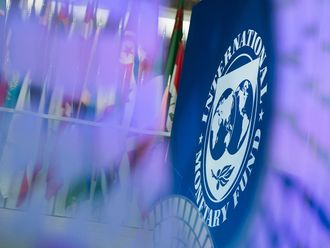Dubai: The recent government decision to impose compulsory zakat payment by Islamic banks and Islamic Financial Institutions (IFIs) to the Zakat Fund, a centralised agency, would amount to discrimination against the IFIs while giving unfair advantage to non-Islamic (conventional) banks, financial institutions and companies, said a leading Islamic scholar.
Last month the UAE Cabinet decided to make it obligatory for local Islamic banks and IFIs to transfer 2.5 per cent of their net operating capital to Zakat Fund.
Dr Hussain Hamed Hassan, Professor of Sharia and Comparative Law at Cairo University, who chairs a number of Sharia boards of leading IFIs such as Emirates Islamic Bank and Dubai Islamic Bank, told Gulf News that zakat, as one of the pillars of Islam, is a compulsory contribution by individuals.
However, each Muslim should pay zakat, as applicable, to the needy himself, according to his relevant financial condition, or authorise another person to do it on their behalf, he said.
IFIs are neither authorised to pay zakat on behalf of any individual depositor or investor, nor can they compel any of their depositors or investors to pay zakat. This is because IFIs are simply not aware of the individual depositor's or investor's financial condition, Dr Hassan said.
Individual responsibility
IFIs are not deducting zakat from depositors because every individual is responsible before Allah to pay zakat on his savings (that includes, inter alia, his deposits) according to his financial condition.
As for the shareholders, in some IFIs the shareholders are paying zakat themselves, and the IFI is not authorised to deduct and pay the shareholder's zakat on their behalf, Dr Hassan said.
Shareholders are paying 2.5 per cent on the market value of their relevant shareholding if they have shares for the purpose of trading. In case these are held on a long-term basis to earn dividends, they pay 10 per cent of the profit received.
However, in some IFIs the shareholders pay their own zakat and authorise the IFI to pay 2.5 per cent with respect to the "Retained Earnings" and "Reserves" held by the IFI. In such cases the IFIs will inform the shareholders about the amount deducted as zakat. The shareholder can accordingly deduct the same from his respective zakat obligation.
Dr Hassan's comments come in the context of a recent proposal that the UAE is planning to centralise the zakat payments of IFIs through Zakat Fund, which collects zakat from Muslims as a percentage (2.5 per cent) of their wealth.
Proposal
According to the proposal, starting next year local IFIs will have to pay 2.5 per cent of their net operating capital to the Zakat Fund.
Last month Abdullah Bin Aqeeda Al Muhairi, secretary general of the UAE Zakat Fund, told Gulf News that eight Islamic banks and 13 Islamic finance and insurance companies are among those that will have to make their zakat payments directly to the Zakat Fund, and the fund's bylaws will be amended to make it obligatory for these companies to submit audited accounts and pay 2.5 per cent of their net operating capital to the fund.
Applicability
Dr Hassan said if zakat is made mandatory, it should be made applicable to all banks and financial institutions, whether Islamic or conventional. Sharia does not allow discriminating against shareholders of IFIs by compelling them to pay zakat, while shareholders of conventional counterparts have no such obligation, he said.
According to Dr Hassan, any move to impose compulsory zakat payments on IFIs would adversely affect the performance of IFIs, as the compulsory zakat (if restricted to IFIs) will turn away general equity investors from IFIs to their conventional counterparts.
"There should be a level playing field for all. If Zakat payment is to be made a statutory requirement in the UAE, it should apply to all business establishments operating in the country. No doubt that would be a highly appreciated move," he said.
Fact file: Central tenet
Zakat is the charity that every adult Muslim must make to support the poor. However, it is only mandatory for those who have certain amount of wealth or savings. It is obligatory upon those eligible Muslims to give 2.5 per cent of wealth each year to the poor.
Zakat Fund, An independent federal authority aimed at augmenting Zakat awareness in society as well as collecting Zakat, was established in 2003 as the single federal entity authorised to collect and disburse Zakat inside the country and abroad.
The Fund's bylaws will be amended to make it obligatory for Islamic banks and IFIs to submit audited accounts and pay 2.5 per cent of their net operating capital to the fund.












